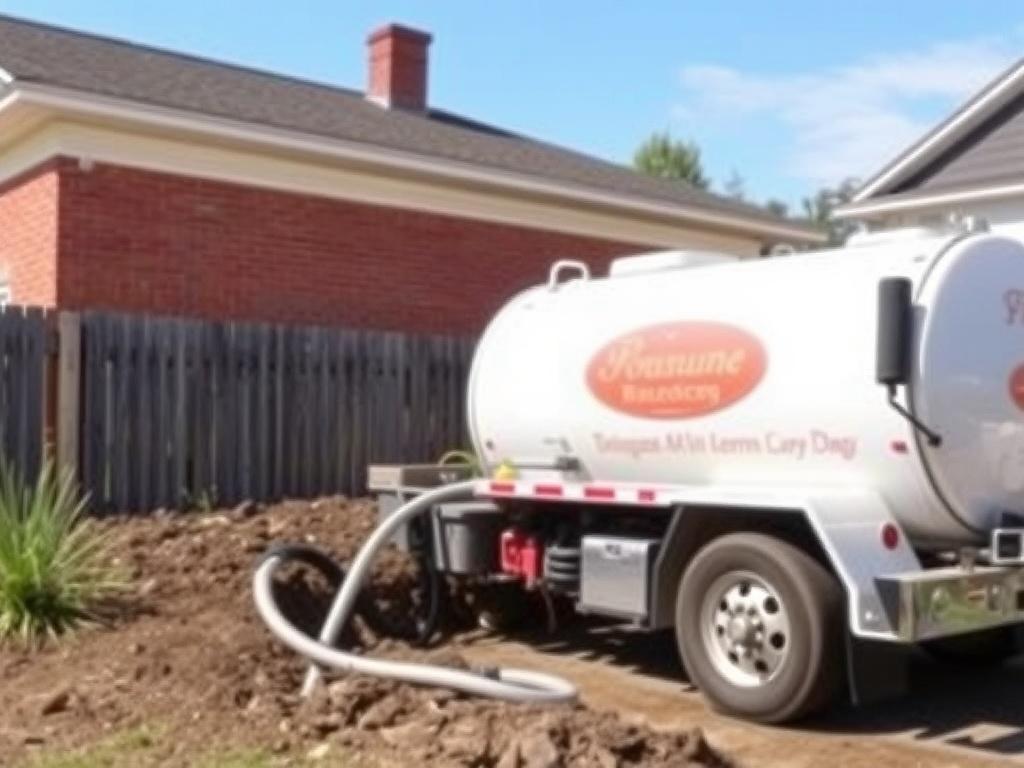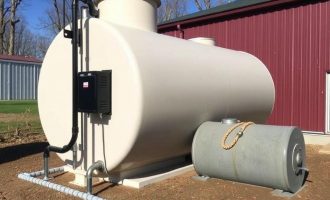Septic tank pumping is a crucial aspect of maintaining a healthy and functioning septic system. But when it comes time to address this necessary task, many homeowners find themselves asking: Should I handle septic tank pumping myself or hire a professional? This question often leads to a deeper exploration of the pros and cons of each approach, the costs involved, and the risks you might face if the job is not done properly.
In this comprehensive guide, we’ll break down everything you need to know about septic tank pumping, helping you make an informed decision. Whether you’re considering a DIY project or unsure about hiring a septic tank service, this article will give you a full understanding of what’s involved, the safety considerations, and how to ensure your septic system stays in tip-top shape for years to come.
- What Is Septic Tank Pumping and Why Is It Important?
- Key Benefits of Regular Septic Tank Pumping
- DIY Septic Tank Pumping: What You Need to Know Before Getting Started
- Equipment and Tools Needed for DIY Septic Tank Pumping
- Legal and Environmental Considerations
- Hiring a Professional: Pros and Cons
- Why Hire a Professional for Septic Tank Pumping?
- Potential Downsides of Hiring a Professional
- Comparing DIY Septic Tank Pumping vs. Hiring a Pro
- How to Choose the Right Professional Septic Tank Pumping Service
- Tips for Finding a Reliable Septic Tank Service Provider
- Maintaining Your Septic System Between Pumping
- Septic System Maintenance Tips
- Signs You Need Septic Tank Pumping Sooner
- Cost Breakdown: How Much Does Septic Tank Pumping Typically Cost?
- Conclusion
What Is Septic Tank Pumping and Why Is It Important?

Septic tank pumping refers to the process of removing accumulated sludge, scum, and wastewater solids from your septic tank. Over time, solid waste settles at the bottom of the tank, forming sludge, while lighter materials like fats and grease float on the top as scum. If these solids are not regularly removed through pumping, they can cause serious problems such as clogs, system backups, and eventual failure of the entire septic system.
Most experts recommend septic tank pumping every 3 to 5 years, but this timeline can vary depending on factors such as tank size, household size, and water usage. You might wonder why the interval is flexible — the reality is that robust maintenance tailored to your unique usage is the key to avoiding expensive repairs down the road.
Key Benefits of Regular Septic Tank Pumping
- Prevents sewage backups in your home
- Extends the life of your septic system
- Protects local groundwater and the environment
- Maintains compliance with local health and safety regulations
Understanding why septic tank pumping is necessary helps you appreciate its importance beyond just routine maintenance. It plays a critical role in safeguarding your property and the environment.
DIY Septic Tank Pumping: What You Need to Know Before Getting Started
Rolling up your sleeves and tackling septic tank pumping yourself might sound like a great way to save money. After all, many homeowners enjoy handling their own home maintenance tasks. But is septic tank pumping really a DIY-friendly job?
First, it’s important to understand precisely what septic tank pumping involves. The process requires locating the tank, opening its heavy lid, using a powerful vacuum pump to remove the sludge and scum, and ensuring the tank is intact without damage. Besides, you must properly dispose of the extracted waste according to local regulations to avoid contamination or legal issues.
Equipment and Tools Needed for DIY Septic Tank Pumping
| Equipment | Purpose |
|---|---|
| Heavy-duty gloves and protective clothing | To protect yourself from harmful bacteria and chemicals. |
| Safety goggles and face mask | Prevent exposure to harmful splashes and fumes. |
| Vacuum pump or suction hose | To pump out sludge and scum from the tank. |
| Shovel or digging tools | To expose the tank lid if buried. |
| Septic tank inspection flashlight | To inspect the inside of the tank for damage or buildup. |
In addition to having the right gear, you need to be aware of the potential hazards. Septic tanks contain harmful bacteria, viruses, and gases such as methane and hydrogen sulfide, which can be deadly in confined spaces. Without proper training and equipment, a DIY attempt can quickly become dangerous.
Legal and Environmental Considerations
Many localities regulate septic tank waste disposal strictly. Pumping out sludge yourself means you must transport and dispose of it at approved facilities, which often requires permits or adherence to specific guidelines. Failure to comply can result in fines and environmental damage. It’s essential to research your local regulations before attempting DIY septic tank pumping.
Hiring a Professional: Pros and Cons
For those who decide that septic tank pumping is better left to the experts, hiring a professional septic tank service brings several advantages. Licensed professionals come equipped with specialized trucks, expertise in safely handling waste, and knowledge of local codes and regulations.
Why Hire a Professional for Septic Tank Pumping?
- Safety: Professionals have training to manage hazardous materials and prevent accidents.
- Efficiency: Professional pumping services are faster, using industrial-grade equipment.
- Proper Waste Disposal: They ensure sludge is disposed of correctly without harming the environment.
- System Inspection: Pros often inspect your system for signs of wear or problems during pumping.
- Peace of Mind: Knowing the job is done right reduces stress and potential costly mistakes.
Potential Downsides of Hiring a Professional
Of course, hiring a pro comes with a cost, which can be a deterrent for some homeowners. Prices vary by region and tank size but expect to pay somewhere between $250 and $500 on average. Additionally, scheduling might require some flexibility, which could delay urgent maintenance.
However, considering the risks and consequences of improper pumping, the investment often pays off by preventing future repairs or system failure.
Comparing DIY Septic Tank Pumping vs. Hiring a Pro

| Factor | DIY Septic Tank Pumping | Hiring a Professional |
|---|---|---|
| Cost | Lower upfront cost but potential hidden costs if mistakes happen | Higher upfront cost, no surprise expenses |
| Safety | Risky without proper training and equipment | Safe with trained staff |
| Time and Effort | Time-consuming and labor-intensive | Quick and hassle-free |
| Legal Compliance | Requires knowledge of local laws and permits | Handled by the professional company |
| Effectiveness | Depends on homeowner’s skill and equipment quality | Guaranteed thorough pumping and inspection |
How to Choose the Right Professional Septic Tank Pumping Service

If you’ve decided to hire septic tank service professionals, selecting the right one is essential. Choosing a reputable, experienced company ensures your septic tank pumping is done properly and safely.
Tips for Finding a Reliable Septic Tank Service Provider
- Check Credentials: Verify licenses, insurance, and certifications.
- Ask for References: Contact past customers or read online reviews.
- Get Multiple Quotes: Compare prices and services offered.
- Inquire About Waste Disposal Methods: Ensure they follow environmental regulations.
- Look for Inspection Services: Some companies include septic inspections as part of pumping.
Taking these steps will give you confidence that your septic tank pumping will extend the life of your system, saving you money and headaches in the long term.
Maintaining Your Septic System Between Pumping
Whether you do septic tank pumping yourself or hire a pro, regular maintenance practices can help keep your system functioning smoothly. Simple habits can reduce sludge buildup and prolong the intervals between pumping sessions.
Septic System Maintenance Tips
- Conserve water to reduce the strain on your septic system.
- Avoid flushing non-biodegradable items like diapers, wipes, or feminine hygiene products.
- Do not pour grease, oils, or harsh chemicals down drains.
- Plant grass over your drain field but avoid deep-rooted plants or trees nearby.
- Conduct regular inspections to catch small problems early.
By taking care of your system, you protect your investment and ensure the health of your home environment and local ecosystem.
Signs You Need Septic Tank Pumping Sooner
Even with proper maintenance, certain warning signs call for immediate septic tank pumping or inspection:
- Slow draining sinks, baths, or toilets
- Unpleasant odors near the septic tank or drain field
- Standing water or wet spots over the drain field
- Gurgling noises in drains or toilets
- Backups in household plumbing
Addressing these issues quickly can avoid costly repairs or complete system replacement.
Cost Breakdown: How Much Does Septic Tank Pumping Typically Cost?
The price for septic tank pumping varies depending on your location, tank size, and accessibility of your system. Here’s an approximate guide to understanding the costs involved:
| Service | Typical Cost Range |
|---|---|
| Septic Tank Pumping (up to 1,000 gallons) | $250 – $400 |
| Additional Tank Size (per 500 gallons) | $75 – $150 |
| Inspection and Report | $100 – $200 |
| Emergency Pumping | $400 – $700 (higher for after-hours) |
Keep in mind, professional septic tank services often include inspection and minor repairs, giving you added value beyond just pumping.
Conclusion
Septic tank pumping is not a task to take lightly. While the idea of a DIY job may attract homeowners looking to save money, the challenges and risks associated with septic tank pumping make hiring a professional the safer and often more cost-effective choice. Professionals bring experience, proper equipment, and knowledge of legal regulations that ensure the job is done thoroughly and safely. Regular pumping combined with smart septic system maintenance habits keeps your system working efficiently, protects your home, and safeguards the environment. Whether you choose to pump your septic tank yourself or hire a septic tank service, understanding the process and planning for regular maintenance is essential for long-term peace of mind and a healthy septic system.
Помогла вам статья?






